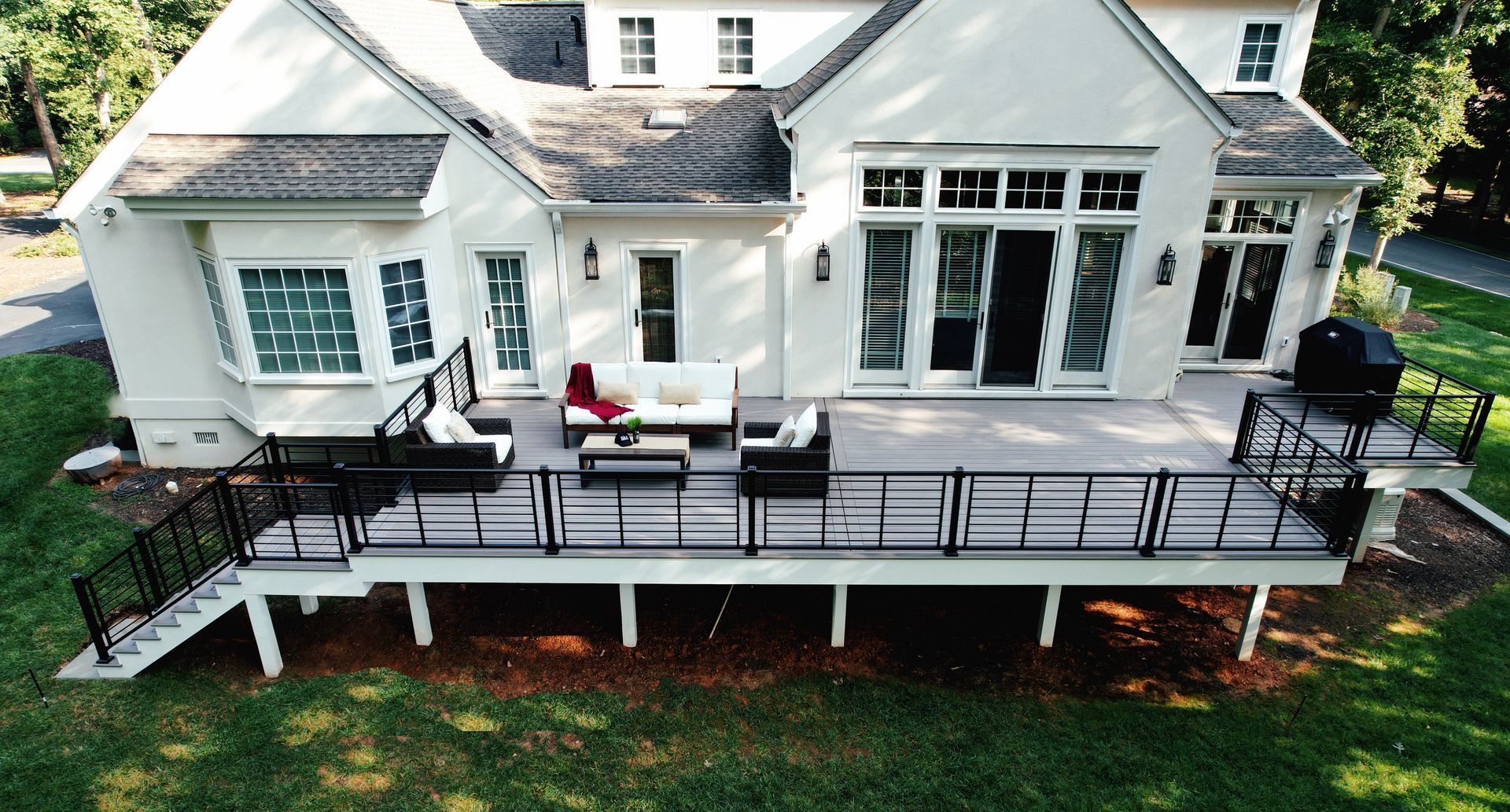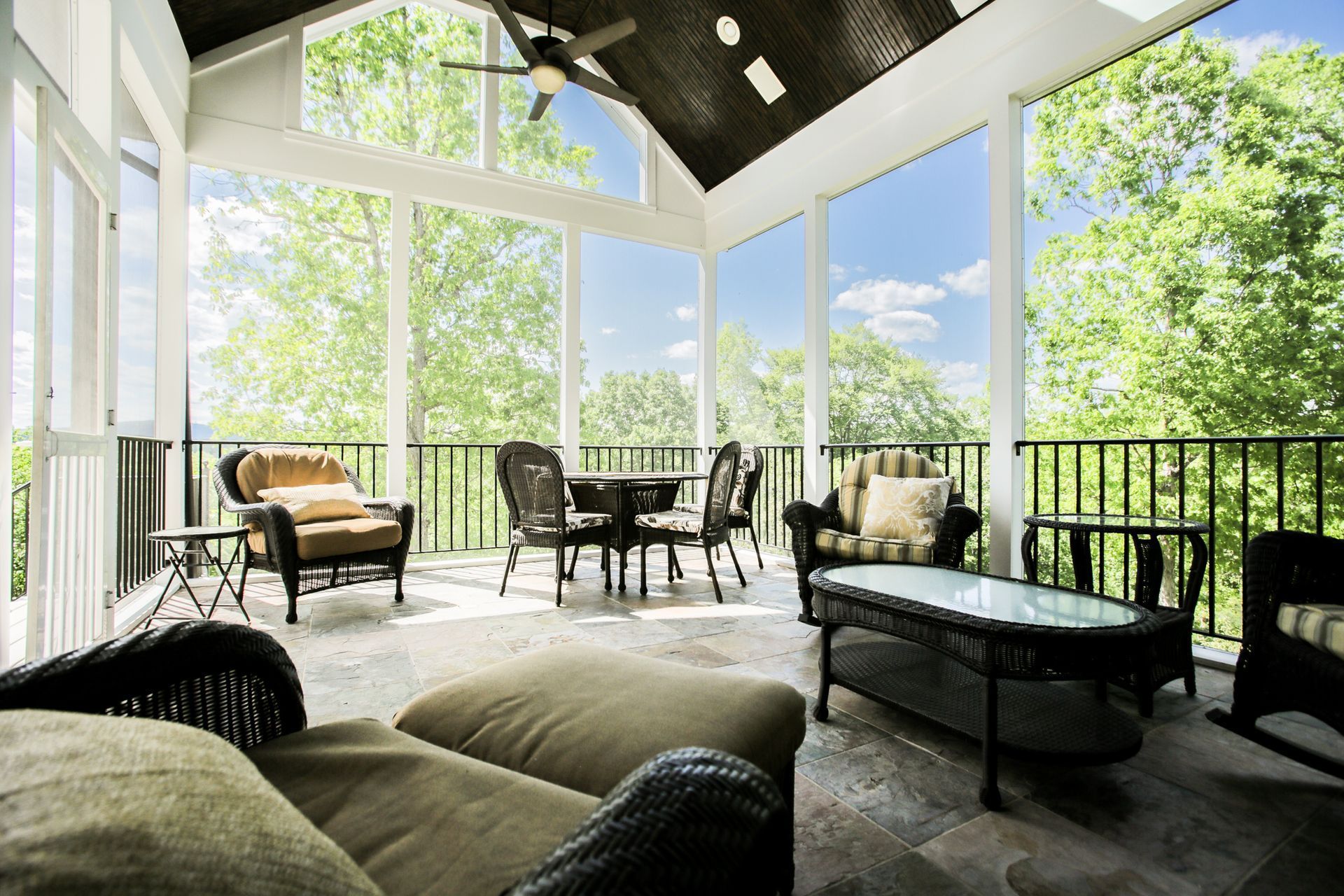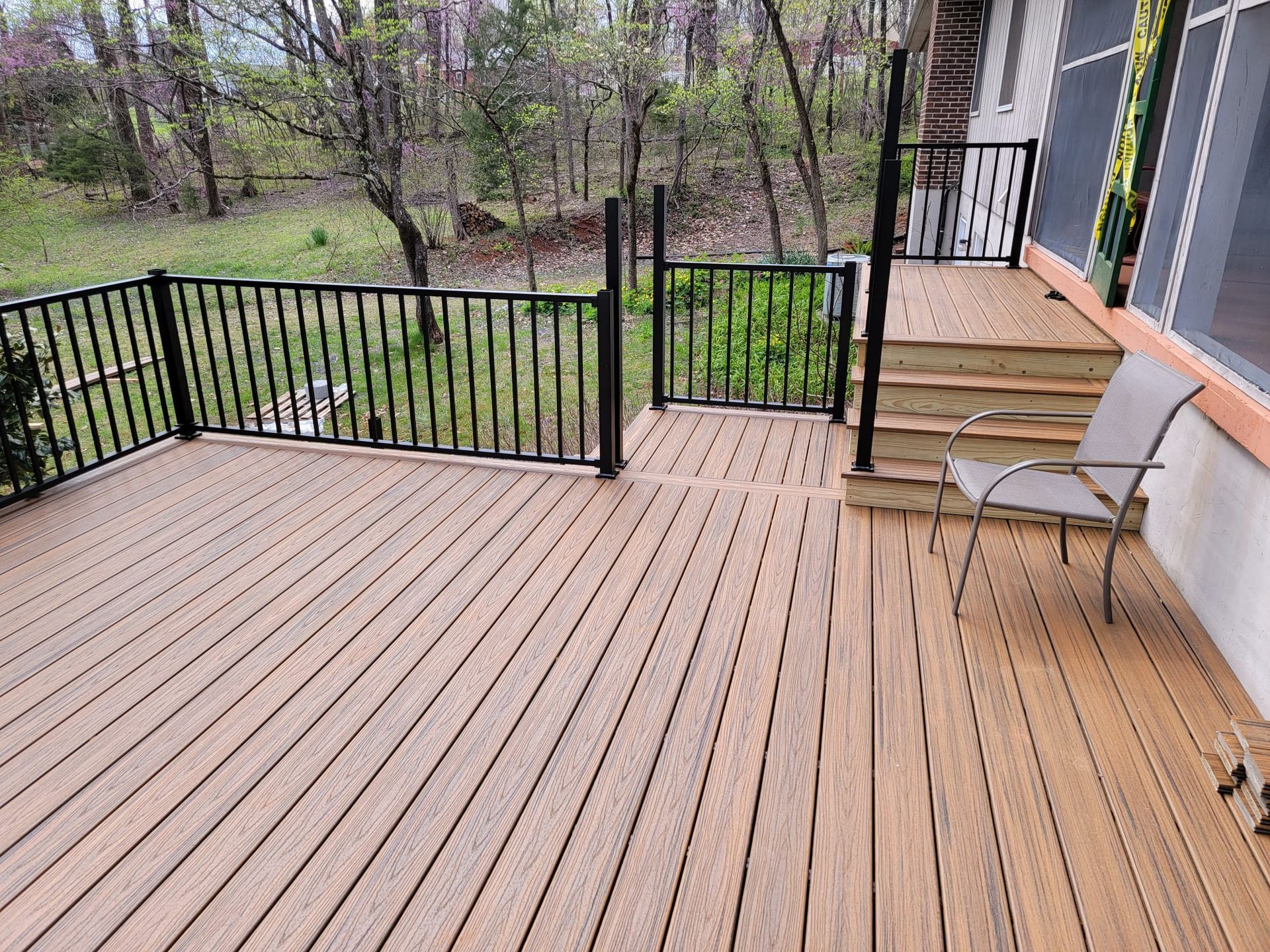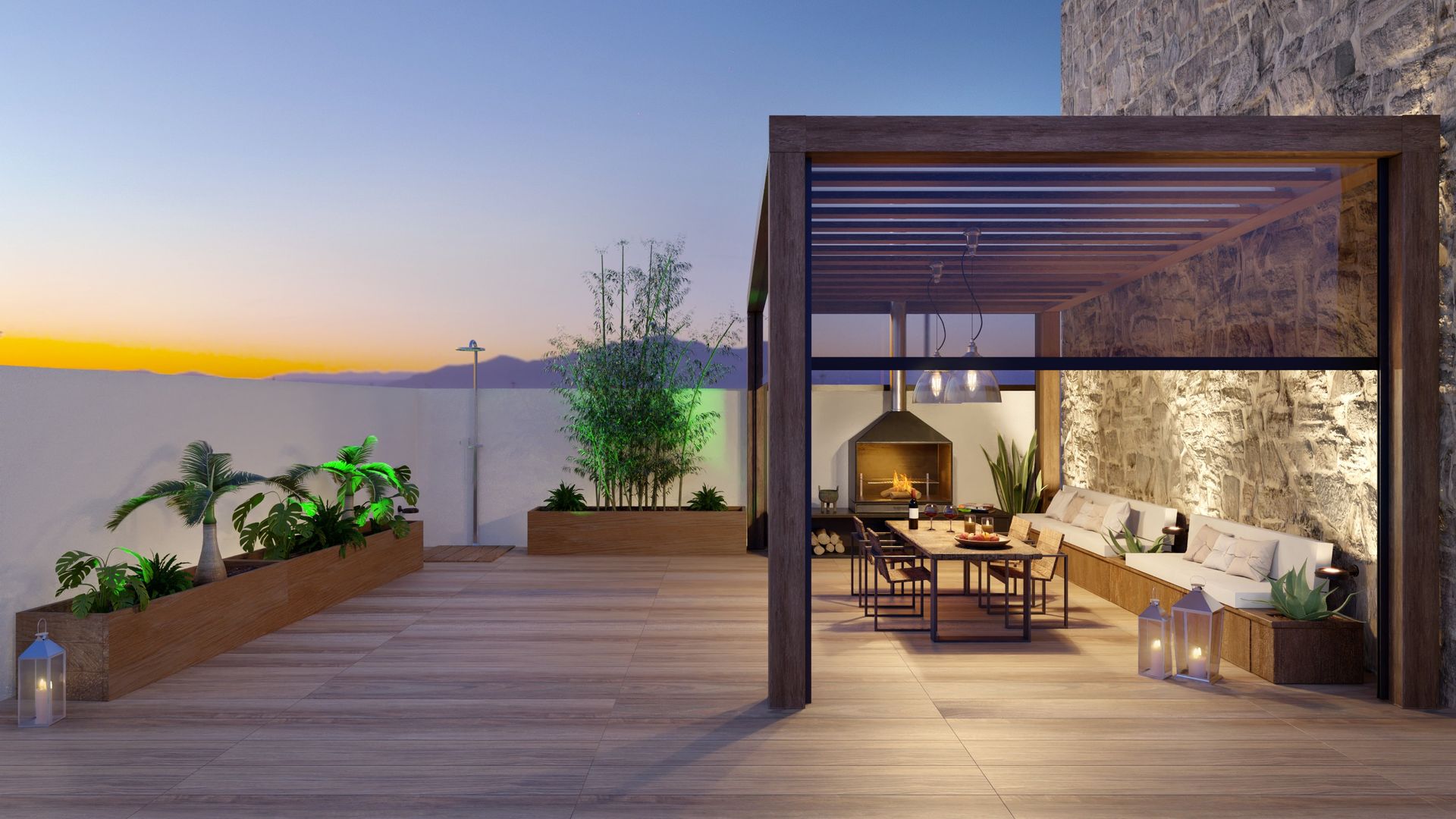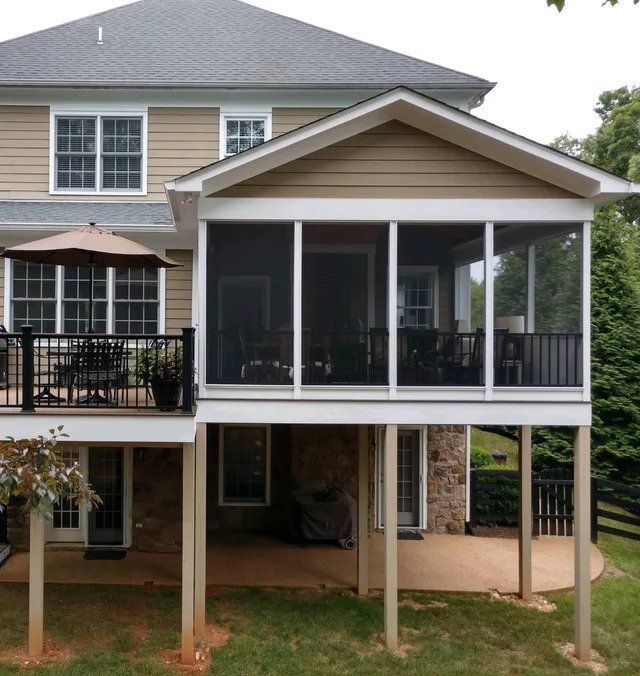Composite Or Wood Deck? What You Should Know
Having a deck in your home has many benefits: from increasing the aesthetic appeal to enhancing outdoor functionality. That’s why choosing the right deck material is an important decision for any homeowner. While there are many options to choose from, wood and composite are the most popular decking materials used. There are many factors to consider when making this choice, and it is important to be informed about your options before making a final decision.
This blog post will help you get your head around the decision of choosing between composite or wood decks. So, read on!
The Pros and Cons of Wood Decking
Wood is a classic decking material loved by homeowners for its elegant finishes, low costs, and the availability of a variety of options. However, it is not without its downsides, which you must consider before finalizing the material.
Pros of wooden decking:
- Less expensive (in the short term)
- They can be easily stained or painted to match the look of your home.
- Wood is easy to work with and some woods, like cedar and teak, are naturally resistant to pests such as termites, so you don’t have to worry about infestations.
Cons of wooden decking:
- They require more maintenance than composite decking and must be re-stained and regularly waterproofed to stay in good condition.
- They are also prone to rotting and warping and can degrade quickly if not stained regularly.
- There isn't a warranty with wood.
The Pros and Cons of Composite Decking
Composite deck boards are designed with a combination of natural and synthetic materials such as wood fibers, plastic, and chemical additives. Synthetic materials give composite deck boards more durability and strength. Owing to this, composite decking has become increasingly popular amongst homeowners.
However, there are certain disadvantages to composite decking as well.
We discuss the pros and cons of composite decking below:
Pros
- Composite decking requires minimal upkeep, as unlike wood, it doesn't need to be revarnished or stained.
- They are designed with non-skid surfaces, making them safer during rain and snowfall. They are also a great option if you have kids and the elderly at home who are prone to slipping.
- Trex has a 50 fade and stain limited warrany.
Cons
- Composite decking is more expensive initially than wood decks.
- Fading may occur due to UV sunlight exposure over time, potentially making it lose its aesthetic appeal.
Which is the best deck material for you?
When building a deck for your home, choosing the right material is paramount to ensure long-term appeal and durability. Both wood and composite have their benefits in terms of price, durability, and aesthetic appeal. Ultimately, the material that is best for you depends on your preferences, local climate, and budget considerations.
With wood decks, you get a classic feel with lasting beauty at a reasonable cost. At the same time, composite decks offer a low-maintenance option while bringing unique bits of colors that are often more consistent than wood.
Whichever material you choose, make sure your decision is based on the availability, longevity, and maintenance requirements of your home or workplace.
Five things to consider when choosing the right decking material
When it comes to choosing the right decking material for your home or workplace, certain considerations should come into play.
Potential buyers should consider five important factors to select the best option:
- Long-term cost:
The long-term cost is a factor to consider due to the substantial price difference between the two materials. Composite is 15 to 20 percent costlier than wood. However, wood requires more maintenance, so it eventually evens out or makes composite less expensive.
- Maintenance:
Maintenance could play an important factor in making the decision; composite requires less time and work for upkeep due to its non-porous traits, compared to wood which needs regular staining or sealing.
- Environment:
You should consider how the weather in your region will affect the longevity of either material. In moist areas, wood can warp, while composite can get hot if you chose a darker color.
- Preference: Lastly, personal preference is a huge part of the decision-making process; both materials have their benefits and disadvantages.
Ultimately, the best way to decide between wood and composite is to determine which characteristics matter most to you and your family. If you want a timeless, classic, more elegant appeal, go for wooden decking.
However, if low-maintenance requirements and durable appeal is more to your tastes, then composite decking may be the perfect option for you!
About Decks by DAK-
Are you looking for screen porches or deck options for your home? At Decks by Dak, the customer is the lifeblood of what we do. That's why we promise to put your requests and needs at the forefront of our work. We will do everything in our power to create our projects exactly to your specifications, only pivoting to help you ensure the quality and longevity of your investment. Whatever you wish to accomplish, we'll find a way to help you make it work! Our services include Trex Decks by DAK, screened porches and sunrooms, patios and outdoor living spaces, and pressure-treated decks. Count on us to deliver the outdoor living fixtures you've always dreamed of! Visit
our
website,
email us, or call us at
434.260.4033 to learn more.
All Things Decking

